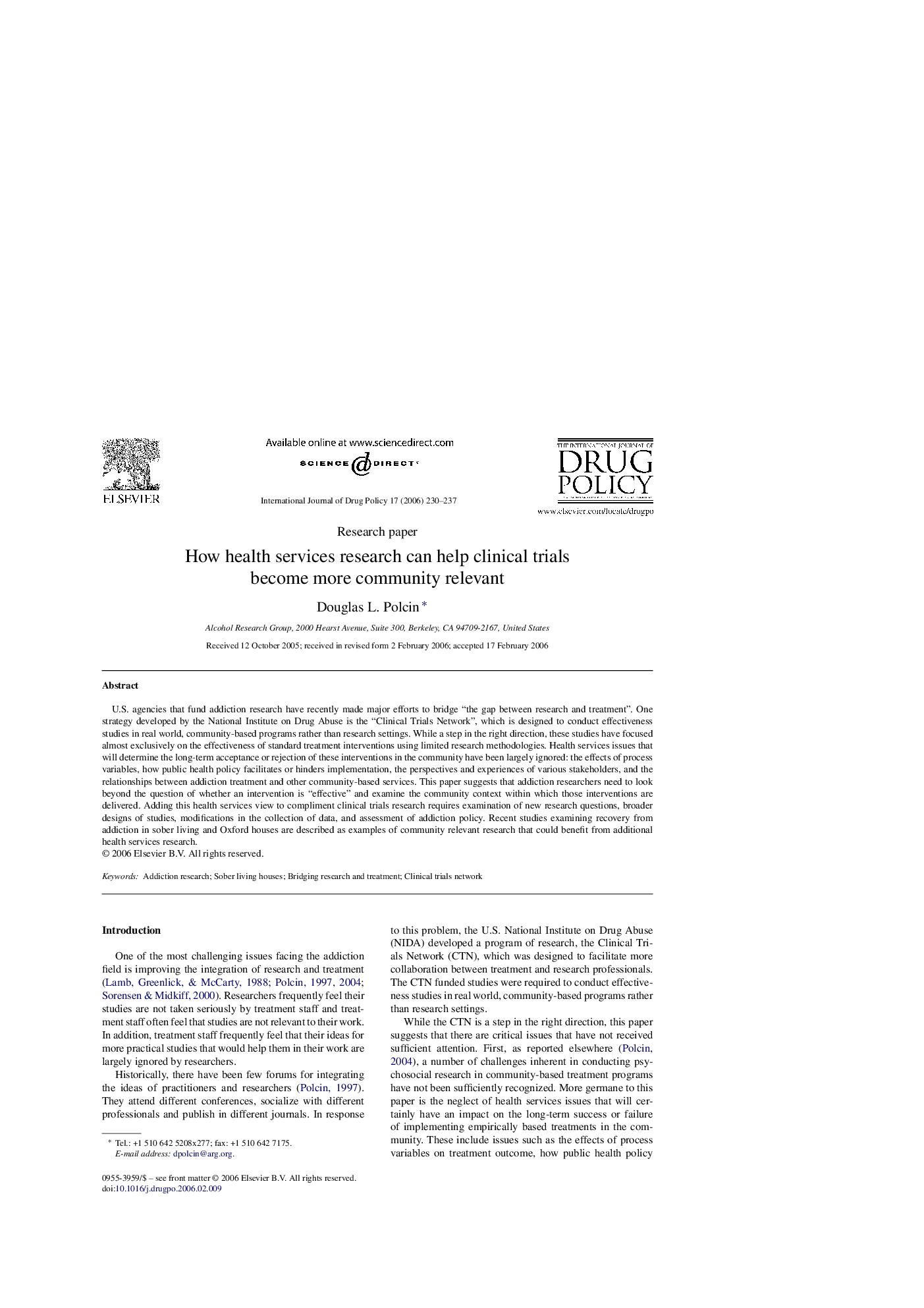| Article ID | Journal | Published Year | Pages | File Type |
|---|---|---|---|---|
| 1075727 | International Journal of Drug Policy | 2006 | 8 Pages |
U.S. agencies that fund addiction research have recently made major efforts to bridge “the gap between research and treatment”. One strategy developed by the National Institute on Drug Abuse is the “Clinical Trials Network”, which is designed to conduct effectiveness studies in real world, community-based programs rather than research settings. While a step in the right direction, these studies have focused almost exclusively on the effectiveness of standard treatment interventions using limited research methodologies. Health services issues that will determine the long-term acceptance or rejection of these interventions in the community have been largely ignored: the effects of process variables, how public health policy facilitates or hinders implementation, the perspectives and experiences of various stakeholders, and the relationships between addiction treatment and other community-based services. This paper suggests that addiction researchers need to look beyond the question of whether an intervention is “effective” and examine the community context within which those interventions are delivered. Adding this health services view to compliment clinical trials research requires examination of new research questions, broader designs of studies, modifications in the collection of data, and assessment of addiction policy. Recent studies examining recovery from addiction in sober living and Oxford houses are described as examples of community relevant research that could benefit from additional health services research.
